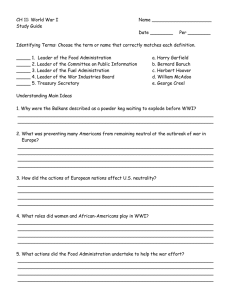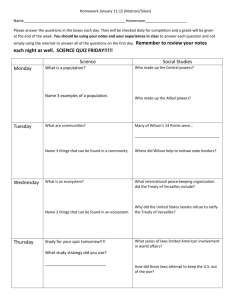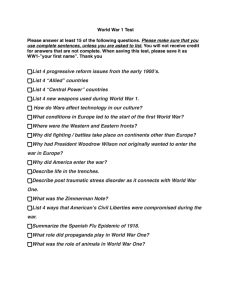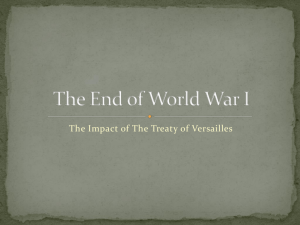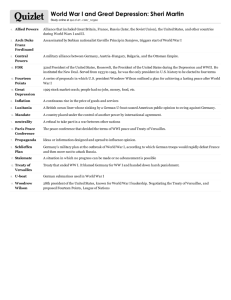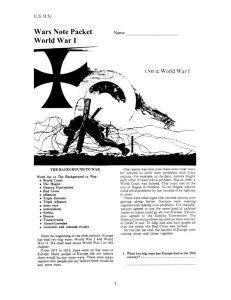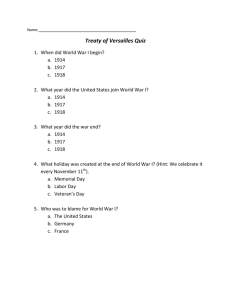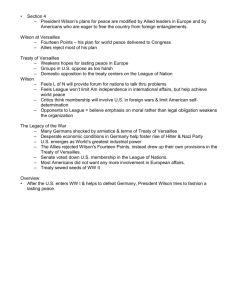WWI Review Guide
advertisement
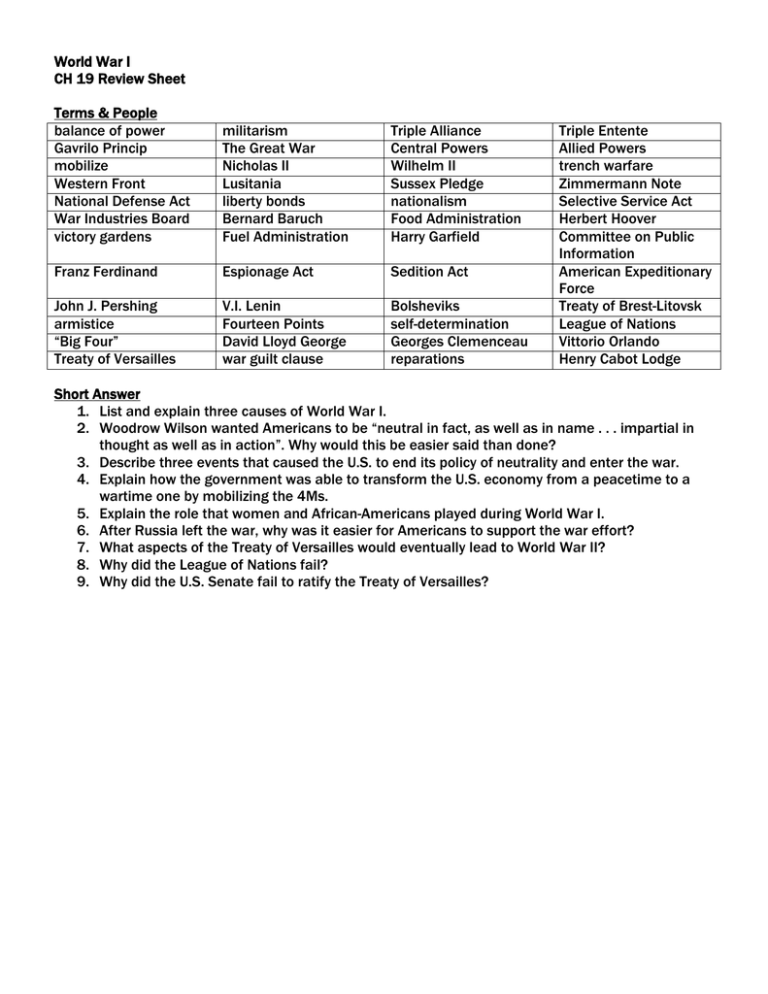
World War I CH 19 Review Sheet Terms & People balance of power Gavrilo Princip mobilize Western Front National Defense Act War Industries Board victory gardens militarism The Great War Nicholas II Lusitania liberty bonds Bernard Baruch Fuel Administration Triple Alliance Central Powers Wilhelm II Sussex Pledge nationalism Food Administration Harry Garfield Franz Ferdinand Espionage Act Sedition Act John J. Pershing armistice “Big Four” Treaty of Versailles V.I. Lenin Fourteen Points David Lloyd George war guilt clause Bolsheviks self-determination Georges Clemenceau reparations Triple Entente Allied Powers trench warfare Zimmermann Note Selective Service Act Herbert Hoover Committee on Public Information American Expeditionary Force Treaty of Brest-Litovsk League of Nations Vittorio Orlando Henry Cabot Lodge Short Answer 1. List and explain three causes of World War I. 2. Woodrow Wilson wanted Americans to be “neutral in fact, as well as in name . . . impartial in thought as well as in action”. Why would this be easier said than done? 3. Describe three events that caused the U.S. to end its policy of neutrality and enter the war. 4. Explain how the government was able to transform the U.S. economy from a peacetime to a wartime one by mobilizing the 4Ms. 5. Explain the role that women and African-Americans played during World War I. 6. After Russia left the war, why was it easier for Americans to support the war effort? 7. What aspects of the Treaty of Versailles would eventually lead to World War II? 8. Why did the League of Nations fail? 9. Why did the U.S. Senate fail to ratify the Treaty of Versailles? Understanding Main Ideas 1. Why were the Balkans described as a powder keg waiting to explode before WWI? 2. What was preventing many Americans from remaining neutral at the outbreak of war in Europe? 3. How did the actions of European nations affect U.S. neutrality? 4. What actions did the Food Administration undertake to help the war effort? 5. How was the Treaty of Brest-Litovsk a positive event in the eyes of many Americans? 6. Explain the Treaty of Versailles. What parts would eventually lead to WWII? 7. Explain the following famous quotations from Woodrow Wilson: o “We must make the world safe for democracy” o “peace without victory” o “the war to end all wars” 8. Why did the League of Nations fail? 9. What could Woodrow Wilson have done differently that might have led to the Treaty of Versailles eventually being ratified by the Senate? Extra Extra Review Questions 1. What was the initial spark that began World War I? 2. Who were the Allies? Who were the Central Powers? 3. List 5 advancements in technology that led to high casualties. 4. Describe trench warfare. 5. What was the Lusitania? 6. List two reasons America eventually entered the war. 7. When was the Russian Revolution? What impact did this have on Russia’s involvement in the war? 8. Discuss the Battle of the Marne. 9. How did World War I change the United States?

